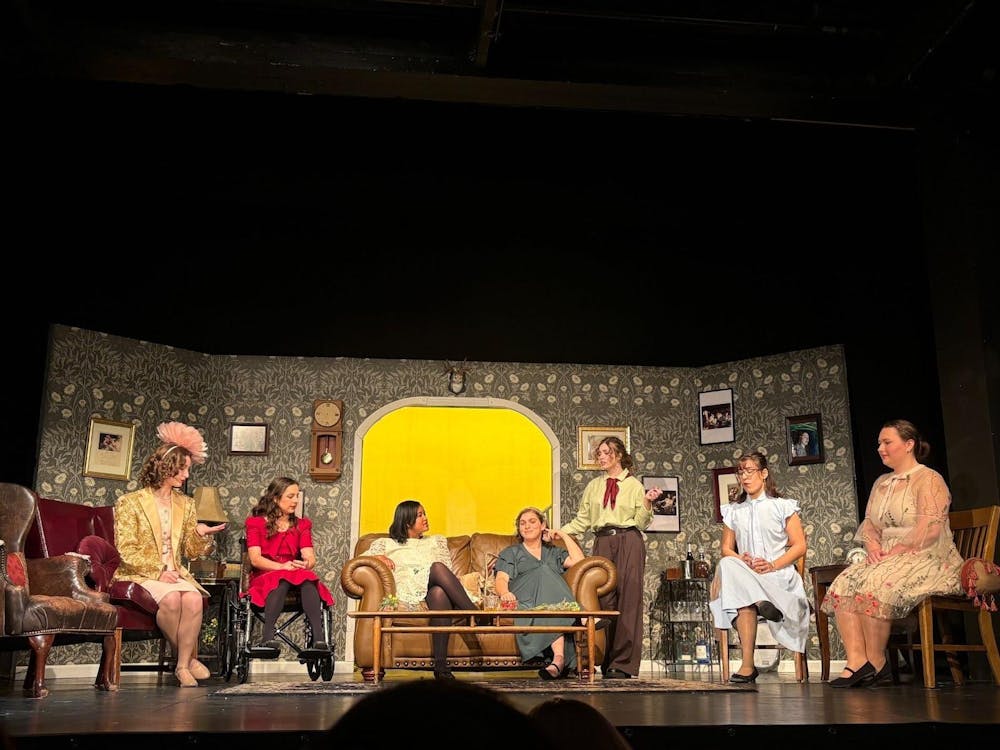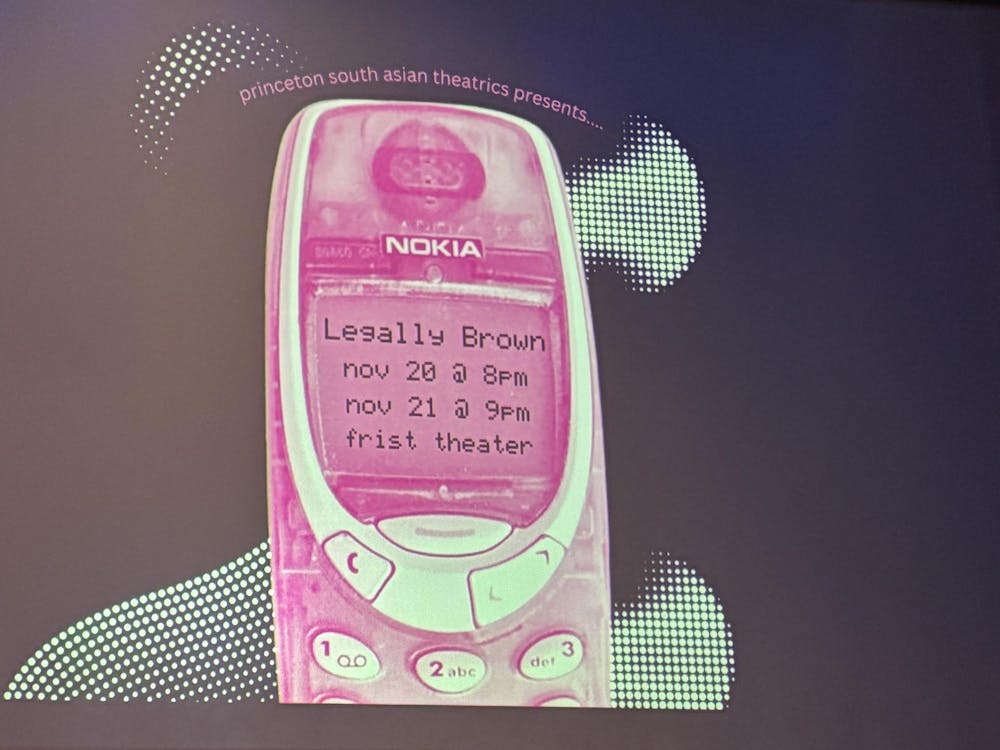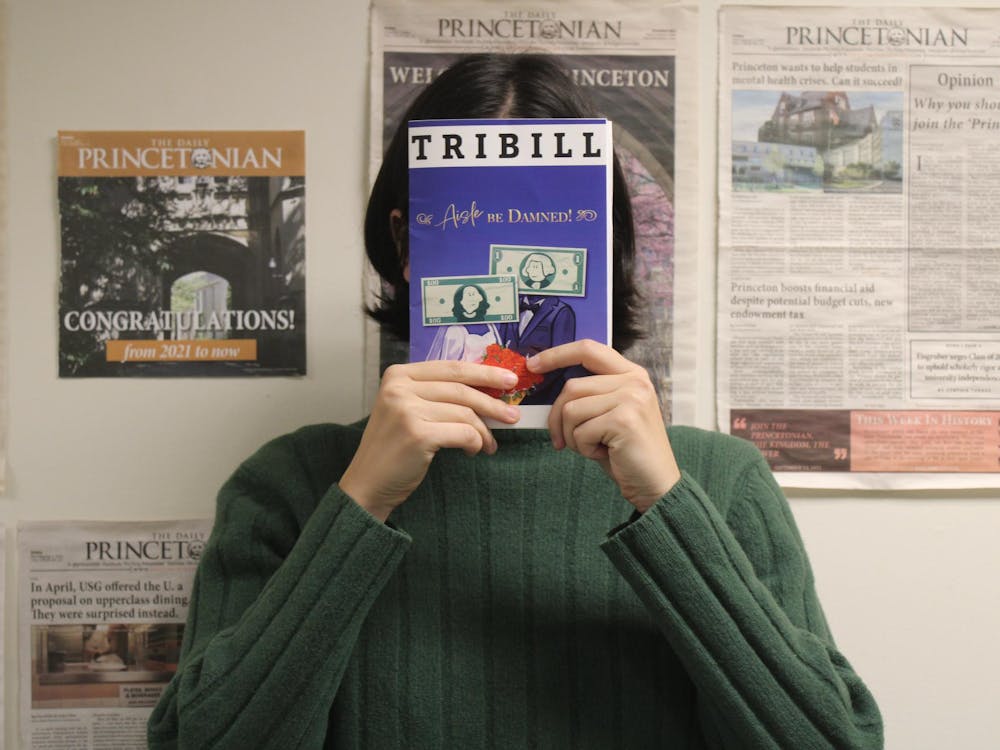“Ruan Lingyu” is a play based on the true story of a Chinese silent film star of the same name who rocketed to fame, grew embroiled in scandal and committed suicide at the age of 24. Princeton Chinese Theatre presents this tragedy in the Class of 1970 Theatre in Whitman College, exploring themes of love, betrayal and the murky intersection between a celebrity’s private and public lives, to mixed success.
The play opens with Ruan’s friends and her father loudly mourning her death as the characters tell Ruan’s story through flashbacks. Biyang Wang ’14 plays the leading role in the tragic tale of the actress, a young woman from a poor upbringing who found herself thrust into the scrutiny of the public spotlight. Wang plays Ruan passably, but she lacks a certain conviction. When her first husband, the son of her father’s employer, begins to woo her, she appears aloof at first, but changes her mind when he presents her with a pair of earrings. Wang’s depiction of Ruan’s change of heart seems too forced and contrived to believe, leaving the audience unsure of whether Ruan ever truly loved him at all, especially once their marriage beings to unravel.
Veteran PCT actors Shiyao Gu ’14, Eddie Chen ’16 and Richard Hu ’16 offer the best performances of the play. Gu plays Ruan’s second lover, Tang Jishan, who found wealth and fame as a tea tycoon. His courtship of Ruan feels more natural than that of her first husband. Tang first approaches the situation with grace and gilded promises, but his relationship with Ruan eventually deteriorates as well when he merely keeps her as a mistress and fails to marry her. It is noteworthy that polygamy was legal in 1930s China, the setting of the play, although the second wife had a lower social status than the first wife. Because of this, Ruan agreed to a relationship with Tang only if he would divorce his first wife and marryRuan instead — a promiseTang did not keep. Gu portrays Tang with a slick swagger befitting of this wealthy tea tycoon playboy, bringing a multifaceted character to the play’s set.
Chen portrays Ma Dage, an actor who is also a colleague and friend of Ruan. Ma introduces himself to the audience with exaggerated pretension, gaudily basking in his glory as a Chinese film star. Chen’s comic relief as Ma brings a degree of levity to an otherwise serious drama, but in select moments with Ruan, his genuine concern as a close friend also shines through. Hu plays Ruan’s aging father, who worked as a household servant for a wealthy woman to help make ends meet for his family. Ruan’s death hits Hu’s character the hardest: The audience can feel the father’s devastation as Hu weeps inconsolably, completelyoverwhelmed by the circumstances surrounding his daughter’s humiliation and death. Hu’s commitment to his character makes this father’s love for his only child the most tender and palpable emotion portrayed by the cast of “Ruan Lingyu.”
“Ruan Lingyu” attempts to explore several themes, but it does not delve deeply enough into any of them. The play felt rushed, as if it had been abridged from a longer, more complete work. Several of the characters, such as Ruan’s directors and her mother-in-law, would have benefited from fuller personalities rather than what felt like one-dimensional sketches. The play touches upon Ruan’s status as a public figure: Shortly before her death, Ruan laments, “Everyone likes me, but no one loves me.” In addition, “Ruan Lingyu” approaches the subject of the contrast between an actress’ real personality and her stage persona. In contemporary China, a cruel insult was to deride someone as a "play-actor," someone with a fake personality. This epithet is applied to Ruan and causes her to question whether she is a good person. “Ruan Lingyu” touches on many weighty themes that regrettably cannot be profoundly explored in a two-hour play.
“Ruan Lingyu” is a very serious tragedy, dealing with one of the most unfortunate tales of early Chinese cinema. PCT presents the subject adequately, but comes up short in delivering its full emotional impact.
4 out of 5 paws
Pros: Standout performances from Gu, Chen and Hu.

Cons: Subpar emotional impact; themes not deeply explored.








